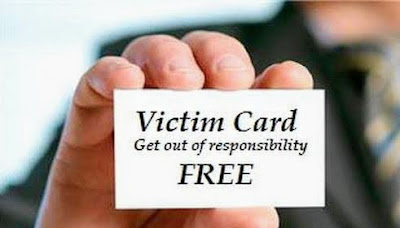We all have that one friend or family member, who loves being the center of attention, borrows money without giving it back, or even gets caught in a lie more than they should. We're all human and make mistakes, right?
Not so fast.
Not only does keeping toxic people around drain you, it can also damage you, both physically and mentally. When we choose to associate ourselves with toxic people, our standards are lowered, and some may take advantage of that.
So, how do you spot a toxic person?
Toxic relationships, whether it be intimate or friendship, tend to have a few things in common. Here are a few red flags to watch out for.
1- They're selfish
Those who treat others poorly, tend to be incredibly selfish. An example of this, would be always asking for help but never helping others in return.
Related: How to convince others
We all have that one friend or family member, who expects you to help them, but when the time comes for them to help you, they're nowhere to be found. What's even worse, is when they come up with excuses like, “Oh, my phone was broken.”
If you surround yourself with selfish people, you will never receive the support that you truly need. Whether it be emotional or physical, they will always have their personal interest at heart, not yours.
2- They constantly tell lies
When we choose to lie to someone, especially a loved one, it is both a conscious and selfish act that can do a lot of damage to the receiver.
The majority that forgive, are left feeling uncertain and disappointed. A relationship that's full of deceit is not a relationship at all, it's a one-way street.
Overtime, the relationship can become strained and frustrating because let's face it, would you associate yourself with somebody who can never tell the truth? There's a big difference between lying about a surprise birthday party and telling your spouse you never cheated, when in fact, you did.
In the first scenario, one is trying to protect the other person but the end result is delightful, while the second scenario is selfish, disappointing, and bares long-term consequences.
3- They play the victim card 24/7.
It's all too familiar – you caught your best friend in a big lie, and all of a sudden, they start mumbling sad stories about their childhood, because well, that's the reason they lied and you have to believe them.
We all go through the same thing – we grow up, we mature, and we're expected to develop good ethics and morals. There's no reason why we should point the finger at past events, in order to justify bad decisions in the now.
There's always a choice to do the right thing, and not have your relationships suffer in the process. The thing about playing victim, is that it eventually becomes exhausting for both parties.
If we constantly think that we're the victim, then we'll always make excuses for ourselves. Even in the wrong, we'll find a way to blame our actions on someone, or something else.
Let's say you wanted to discuss your loved one's bad behaviour and try to salvage the relationship. Those who have the victim mentality are usually incredibly defensive. Getting through to them would be difficult, and they'd bring up every excuse in the book.
You owe it to yourself to be loved by the right people, who will make you feel energized, not drained. Respect your inner peace and let them go.
4- They drain you, both physically and mentally.
Do you ever ask yourself why you feel upbeat and excited around some people, but then feel low, irritable, and blue around others?
According to an article, published by Sensitive Evolution, our bodies absorb the energy of others. Energy suckers, or energy vampires, are those who take all of your mental and physical energy away, leaving you with nothing. Despite the discouraging words, there are ways to block out the uninvited.
The first rule - you cannot please everyone. Practicing this mantra. It is key and you must be patient with yourself. Sometimes, pleasing everyone on a constant basis can lead to burnout. Don't do that. You're not perfect, and you cannot be at everyones' beck and call every second of the day.
The second rule, is be cautious when letting people in. We all have inner peace and from time to time, someone will try to take that away from you. You do not have to let everyone in, and exercising that choice will help set healthy standards.
Being more selective will allow you to focus your energy on the positive relationships in your life, not the dead-end ones.
The third rule, is pay zero attention to those who bring you down. This one can be difficult to practice because there are so many people out there, who influence us and our well-being every single day.
With a lot of self-discipline though, it's possible to shut them out completely. The answer is simple – if it doesn't make you happy and lift you up, then forget about it and move on.
A perfect example, would be letting go of a partner who constantly puts you down. The process will be difficult but the end result will be worth it. Letting go is an act of self- love, not selfishness.
Conclusion
Even as a writer, I can testify that there were many toxic people in my life that I had to cut off. I watched my mental health decline and asked myself why I kept those people around.
I made a pros and cons list. I spoke to my parents. It came down to one thing – I didn't feel fulfilled when I was in their company, and realized that it was time to cut the cord.
Do yourself a favor and show your heart, mind, and body some self-love – let them go.









1 Comments
Great read!
ReplyDelete